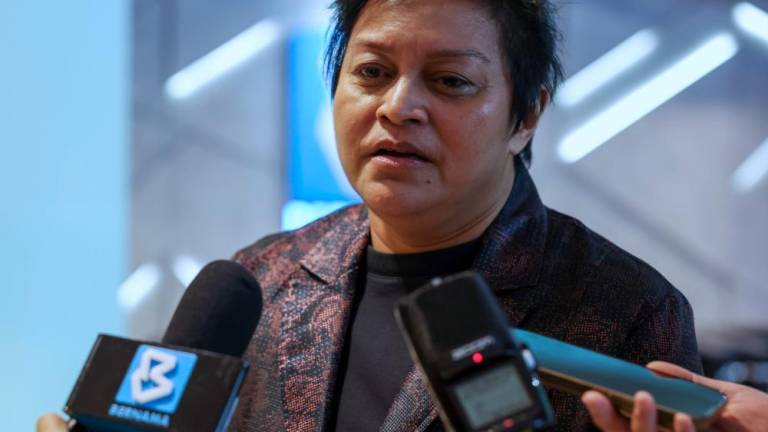WE live in an age of the internet. A sentence heard and repeated ad nauseam since the advent of the internet.
The internet has taken over the very core of human existence. With the pandemic, it has even replaced face-to-face interaction, which is only slowly returning to some semblance of normalcy.
As is the way of this world, it has also become a festering ground where people mala fide post private and confidential information about an individual publicly, otherwise known as doxing.
What happens when one can type or say anything that one wishes which can be essentially “broadcasted” to the rest of the world within a matter of seconds? A near-emboldened behaviour sets in.
This is especially seen in the context of negative events, or circumstances that inspire negative emotions, which are vast and many.
Now and then, something happens to anger us as individuals, or as a collective whole.
When it is us as a collective whole, well, that is when the trouble begins. Internet sleuthing and layman detectives start burgeoning.
Take for example, an incident that happened back in July 2021: an individual spoke with a heightened voice against another individual in respect of wearing a mask.
The legality of the incident itself aside, what followed was a sequence of events that has become normalised.
This particular individual’s personal information was spread all across social media: his identity, workplace, and even home address. The incident is only one example.
When there is support from a community of people with similar beliefs, what was perhaps at one point only a rare occurrence, has now flourished.
Victims of doxing are from all walks of life, women, employees, and everyone in between.
A lot of times, victims are those who are not in a position to defend themselves, such as women who have escaped from abusive relationships.
In a moment of anger, we all act out in ways that are sometimes incomprehensible.
With the internet, however, and this is especially clear when there is a herd of angry people, there is a proclivity to publish an individual’s personal information publicly as some kind of vigilante justice.
The thing about vigilante justice is that it usually appears in nations and countries that are lawless.
In this respect, we must always bear in mind that the court of public opinion is merciless, vicious, sometimes malicious and almost always lacking neutrality.
It also commonly completely flies in the face of the well-worn principle of “innocent until proven guilty” (which is codified in Article 11 of UN’s Declaration of Human Rights 1948).
Malaysia is not in a state of anarchy. Although the laws on doxing in Malaysia are not spelt out directly, there are instances in which these acts of “vigilante justice” can lead to civil and/or criminal action.
The laws in question (non-exhaustive) are as follows:
1. Section 233(1)(a) of the Communications and Multimedia Act 1988 (Improper use of network facilities or network service). A lot of laymen will know this provision and it is most commonly used in tandem with Section 505(b) of the Penal Code (Statements conducing to public mischief). However, the widely-worded provision in this context could be used by individuals who are victims of doxing as it, among others, provides that any person who makes, creates or solicits and initiates transmission of “any comment, request, suggestion or other communication which is obscene, indecent, false, menacing or offensive in character with intent to annoy, abuse, threaten or harass another person” commits an offence. Doxing is more often than not, an act of abuse and harassment and thus this provision would encompass it.
2. Tort of harassment. Now, this would be in the context where an individual chooses to take civil action against the perpetrator (here, the person who committed the act of doxing). Here, a case in point is the case of Khorosandijan v Bush (1993) QB 727, an English case law. In the case, the plaintiff’s former boyfriend became unhappy that the relationship had ended and continuously pursued the plaintiff and her family with unwanted visits and abusive calls. The English Court of Appeal held that the defendant’s actions amounted to a tort and the plaintiff was granted an injunction so that she would be protected. In this respect, the tort of harassment could apply to doxing. The elements of abuse are the same as the effects of the harassment. An injunction could be sought by victims to restrain the perpetrator from posting further personal information and/or compel him/her to remove published content.
3. Personal Data Protection Act 2010. Section 6(1)(a) (General Principle) provides that a data user shall not in the case of personal data other than sensitive personal data, process personal data about a data subject unless the data subject has given his/her consent to the processing of the personal data. Here, it would be an offence for a person who has come across data processed per the Personal Data Protection Act to reveal that data to the general public without the consent of the data subject.
4. Section 499 of the Penal Code (criminal defamation). In the context of doxing, the publishing of personal information with the intent to, among others, harm the reputation of the individual would come within the ambit of this provision.
All in all, with the proliferation of internet use (and misuse), there is an argument to be made that doxing needs to be codified and/or a specific law against it ought to be drafted and tabled in the Parliament, with caution.
For instance, in the state of Ohio in the US, doxing is not explicitly outlawed.
However, the Menacing by Stalking statute gives the state the ability to charge and prosecute an individual involved in doxing, and there is a trend of charging perpetrators for misdemeanours in the first degree.
In 2019, the Parliament of Singapore passed an amendment to the Protection from Harassment Act to include a new offence: doxing.
Malaysia already has well-drafted laws wherein our lawmakers can do the same, i.e. incorporate doxing into pre-existing laws.
At the very least, a reference to doxing in pre-existing laws would provide clarity and ensure protection against victims of this form of abuse.
Times have changed and our laws should reflect that change in the dynamics of acts that flout the law, whatever shape or form they come in.
Comment: letters@thesundaily.com









